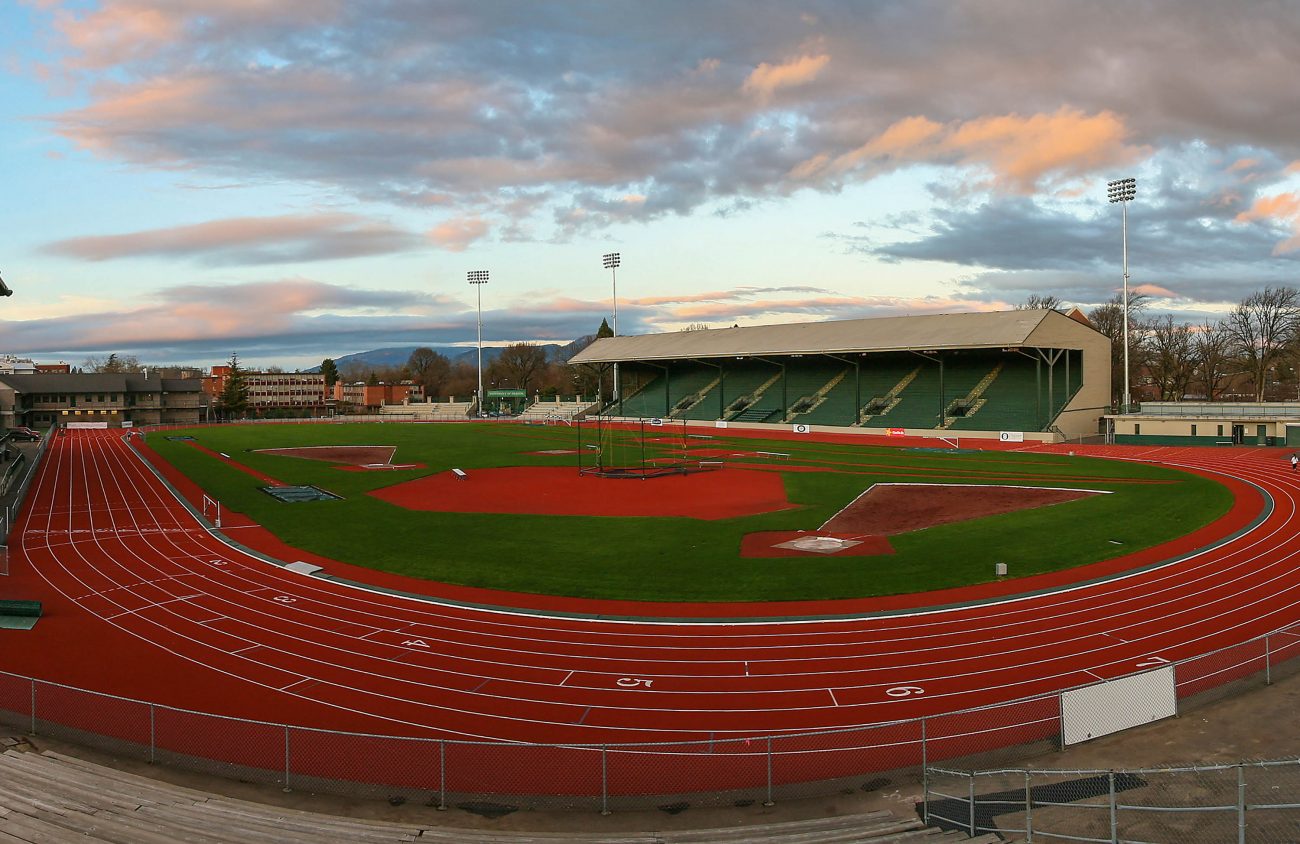The Eugene City Council voted against designating Hayward Field’s East Grandstand as a historic city landmark in its Wednesday, May 9, work session. The council did however vote to direct City Manager Jon Ruiz to work with the university to ensure more public input on reuse of the grandstand’s salvaged materials and impact to the neighborhoods surrounding the new stadium.
The council voted 5-1 on the motion to not designate the East Grandstand as historic. Councilor Betty Taylor, who represents the South Eugene ward, was the one vote against that motion. Councilors Greg Evans and Claire Syrett were not present at the session.
The main argument councilors discussed against the historic designation was that it would be mainly symbolic and would not have any tangible effect on the planned demolition for the site.
“If it is only a gesture, I would still like to make the gesture,” Taylor said. “I still think it’s worthwhile to say what we think is important.”
She added: “I don’t think we have to do exactly what the university wants us to do.”
The second motion, which was passed unanimously by the Council, directs the city manager to:
- Offer to work with and support the University of Oregon as the university engages the community in discussions regarding the preservation and storage of the East Grandstand elements including the university’s community process to develop recommendations on reuse of the salvaged material as much as feasible.
- Offer to work with the university and surrounding neighborhoods to assure that the university mitigates the impact of the new track and field facility construction.
- Offer to work with the university as it establishes a noise, parking and traffic and an ongoing neighborhood assessment process for events occurring at the new facility before it goes into operation.
Councilor Alan Zelenka, of the university ward, was the one who originally put forth the motion to discuss the potential historic designation for Hayward Field during the last City Council meeting on April 23.
“I put forward this motion not because I wanted to stop the stadium or thought that we could,” Zelenka said.
He said he put forth the motion due to the absence of “any community engagement whatsoever on the part of the UO — and particular on the part of the UO athletic department.”
“I hope the UO will in the future take into the consideration, as they did with the Knight Campus, to take in public engagement,” he said.
Zelenka said he appreciates UO President Michael Schill’s offers to work with the city.
“I would like to compliment President Schill on the promises he has made to the community to engage us on what to do with the salvage of the East Grandstand,” Zelenka said.
He also complimented Schill on the promise to engage the surrounding neighborhoods even though the construction permit does not require that.
“While they only need a building permit for construction of this size and didn’t need a conditional use permit, which would have had them address the issues that we were talking about — noise and parking and traffic — he did promise to engage on that part of the new stadium, even though he didn’t have to, so I compliment him on that,” he said.
